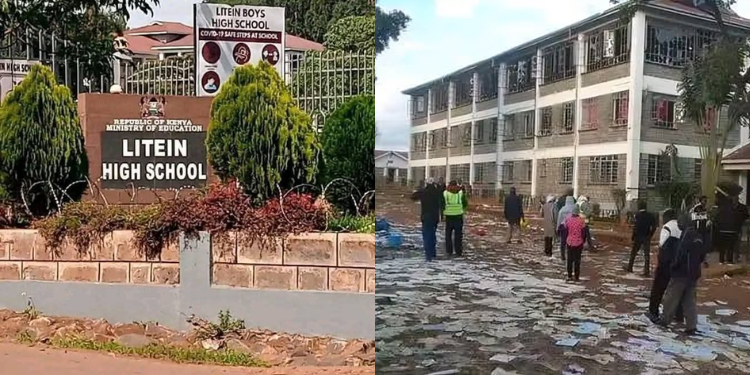Students of Litein Boys High School in Kericho County are staring at a heavy financial burden after the school’s board resolved that each learner must pay Ksh 137,000 to cover damages resulting from recent unrest. This amount comes on top of any pending school fees, effectively making it impossible for learning to resume until parents comply.
The punishment does not end there. Authorities have also declared that no other school in the region will admit the boys from Litein, effectively locking them out of alternative education opportunities. For many families, this decision feels like a double blow—an already huge financial demand coupled with the fear that their children’s future could be cut short.
The situation raises difficult questions about discipline, accountability, and fairness in Kenya’s education system. On one hand, schools must safeguard property and instill responsibility among learners. On the other, collective punishment of this magnitude risks punishing even the innocent, including students who may not have participated in the unrest.
For parents, Ksh 137,000 is no small figure. In a country where many families already struggle to pay school fees, such a demand could push some students permanently out of school. The blanket ban on transfers further denies learners the chance to continue their education elsewhere, amplifying the long-term consequences.
This incident at Litein Boys highlights a growing tension between maintaining discipline in schools and upholding children’s right to education. While responsibility is crucial, solutions must also be reasonable, restorative, and mindful of the futures at stake.
Unless stakeholders step in—parents, education officials, and community leaders—students risk paying not just in shillings, but with their dreams.



